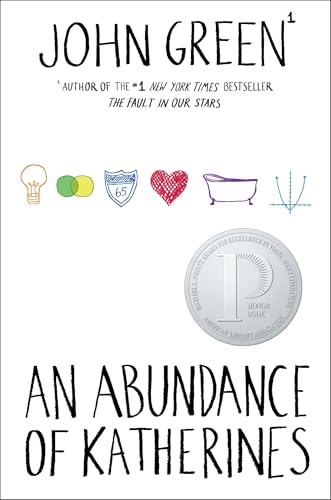It’s Sunday in April. The kids are hopped up on jelly beans and Skittles. My fingers are blue from egg dye. Through the house wafts the smell of ham. My head is pounding with the intensity of a jackhammer in New York City.
Ah, it’s Easter.
But not just Easter for us mind you. Oh, no. It is the Easter following a spring break — a long, long spring break — where our plans were canceled, and I thus had the job... no, the honor of staying home with my kids for 240 hours in a row. Within the first 24 hours, I realized that we were going to have to move up my youngest’s birthday party to, well, yesterday.
Here’s the past 48 hours.
Friday evening: Make crafts for Saturday’s party, make birthday dinner, eat birthday dinner, sneak out of birthday dinner to wrap birthday presents, give birthday presents at family birthday party, put kids to bed, make more crafts for birthday party, go to bed.
Saturday: Go to work, catch up on week’s worth of emails and new books, sit through children’s puppet show, drive home, tidy house, welcome eight first graders, craft, craft, break, craft, craft, PIZZA, cake, presents, bye-bye, crash, “Aren’t you kids asleep yet?” prepare baskets and eggs, hide eggs outside, go to bed.
Sunday: “Can we wake up now?” find baskets, find eggs, play marbles, dye eggs, DO TAXES, write this entry.
So, today I was going to write another in my series of child abuse prevention ideas for everyone, but the most I can manage is sharing something that has been useful to me as a parent, but also in supervising medium to large groups of small to smallest children.
Hesitation to children is like blood in the water to sharks. Children can sense your weakness and if you aren’t firm — not mean — they will keep pushing you to see if there is any wiggle room. If a child asks, “Can I have another piece of cake?” your answer can be, “No, one is enough.” You don’t have to apologize or overly explain how too many sweets will make them hyper or too fat. If the child says, “I want to go swing now.” You can say, “We’re not doing that now. But we will after the presents are opened.” Whether it is your kid, your kid’s friend, your niece, nephew, or neighbor, it’s all right to be the grown-up. But don’t miss the opportunity to dye the Easter eggs with them later.
The Rundown
One of the bestselling preschool books of recent times was Walter the Farting Dog. At the same time, the American Library Association named as one of its best books Michael Rosen’s Sad Book, a book in which Mr. Rosen talks about his despair over the death of his son. I believe that, for most of us, what we want lies somewhere between a flatulent canine and overwhelming grief.
View my complete profile
Email MotherReader

Email MotherReader

Share It
Blog Archive
-
▼
2006
(260)
-
▼
April
(27)
- A Serious Message
- The Funniest Adult Novel That I Have Ever Read
- Not So Much Love
- Just Three Picture Books, No Clever Title
- Flash Blogs in the Arena
- I Vacuumed a Bee
- Permission Granted
- The Fly On The Wall
- New Books About Chinese-American Kids
- The Tooth Fairy Has Left The Building
- Me, Me, Meme
- Best 2006 Picture Books At Your Library
- Rainbow Tour: A Follow-Up
- The Rainbow Tour in Threes
- Blood in the Water
- A Confession
- Odds and Ends
- Win Money Playing Blackjack
- In The Beginning
- Two Little Words
- Going Down Under
- The Fifth Dentist Caves
- The Coolest Mom, The Smallest Weasel, and That Bit...
- Teenage Angst and Poetry
- Sorry, Guys
- Just A Great Weekend
- Distract a Child, Help a Mom (or Dad)
-
▼
April
(27)
Followers
MotherReader Suggests
Funny Books for All Ages
Newborn
One Year
Two Years
Three Years
Four Years
Five Years
Six Years
Seven Years
Eight Years
Nine Years
Ten Years
Eleven Years
Twelve Years
Thirteen Years
Fourteen Years
Fifteen Years
Sixteen Years
Seventeen Years
Eighteen Years
Adult
Newborn

One Year
Two Years

Three Years
Four Years
Five Years

Six Years
Seven Years
Eight Years

Nine Years
Ten Years

Eleven Years
Twelve Years
Thirteen Years

Fourteen Years
- Born Too Short
- Sex Kittens and Horn Dawgs Fall in Love
- Once Upon a Marigold
- Angus, Thongs, and Full Frontal Snogging
Fifteen Years

Sixteen Years
Seventeen Years

Eighteen Years
- Our Dumb Century: The Onion Presents 100 Years of Headlines from America’s Finest News Source
- How to Ruin Your Life
- The Daily Show with Jon Stewart Presents America (The Book): A Citizen’s Guide to Democracy Inaction
Adult

- I’m with Stupid: One Man. One Woman. 10,000 Years of Misunderstanding Between the Sexes Cleared Right Up
- The Sex Lives of Cannibals: Adrift in the Equatorial Pacific
- Things My Girlfriend and I Have Argued About: A Novel
- Why Not Me?
- Good in Bed
- I Love Everybody (and Other Atrocious Lies): True Tales of a Loudmouth Girl
- Bitter is the New Black: Confessions of a Condescending, Egomaniacal, Self-Centered Smartass, Or, Why You Should Never Carry A Prada Bag to the Unemployment Office
Copyright © 2006–2015 MotherReader All rights reserved.
Blogger Template by Anshul Dudeja | WP Theme by Templatelite
Blogger Template by Anshul Dudeja | WP Theme by Templatelite














3 comments:
As someone who doesn't have kids, I especially appreciate parents who are firm with their kids. The outcome otherwise is too horrible to contemplate.
Thanks for the feedback on Penderwicks! I know just what you mean about liking a book on your own, and then feeling great when the power that be bless the book. It's a great feeling. Happy Easter!
...what jen robinson said!
Most people assume that my belief in Prussian child discipline means that I hate children and want them dead.
I do sort of hate children, in the sense that I don't want any of my own. I love children--as long as they're someone else's, and they're well-behaved.
"Well-behaved," of course, is a matter of great conflict. Many people will say that I'm evil for wanting to control children. However: those children with parents who will not control them, will become my nightmare students at some point.
Children need control. They need limits. This does not mean that they should be backhanded or beaten senseless. It does mean that a sensible parent (example: Pam, who does a remarkable job of this) will say "NO" when "NO" is needed.
I recently horrified a few colleagues when, in the teachers' lounge, I posited that a certain student's problem wasn't ADD at all, but the simple fact that nobody had EVER told him to sit down and shut up. It's quite unfashionable to do this. Yet: the student's problem was precisely that. His mother (age 26) and grandmother (age (41) have never made any attempt at constructive discipline. Apparently, along the line nobody ever told the kid, either, that it's a bad idea to screw with a short-tempered English teacher who's dated Marines.
Realistically, though, this is a *really* smart kid, with a lot of potential. If his mother had ever said, firmly, "This is NOT OK," he'd be much better adjusted. As it is, I have to pull up my shirt sleeve and show him muscle--literally--before he submits to English class.
Thanks for your input guys. In follow-up, I think our generation of twenty-something to thirty-somethings has a hard time accepting that we are the adults now. We keep looking around for someone with more authority than US to make the decisions. We want to be friends with our kids (kid's friends, nieces, nephews, neighbors). We want to be the FUN grown-up. And we can be friends and we can be fun, but FIRST our job is to be the adult. We need to set the limits, to teach what is appropriate, and to show confidence in our decisions.
Want to try a little experiment? Watch some interactions with parents and their small children and notice how often the parents tag the word "OK" to the end of every sentence. Such as "we are going to leave in five minutes. OK?" Effectively turning what was statement (we are going to leave in five minutes) into a request (OK?). Pay attention to it next time you're out and about.
Post a Comment